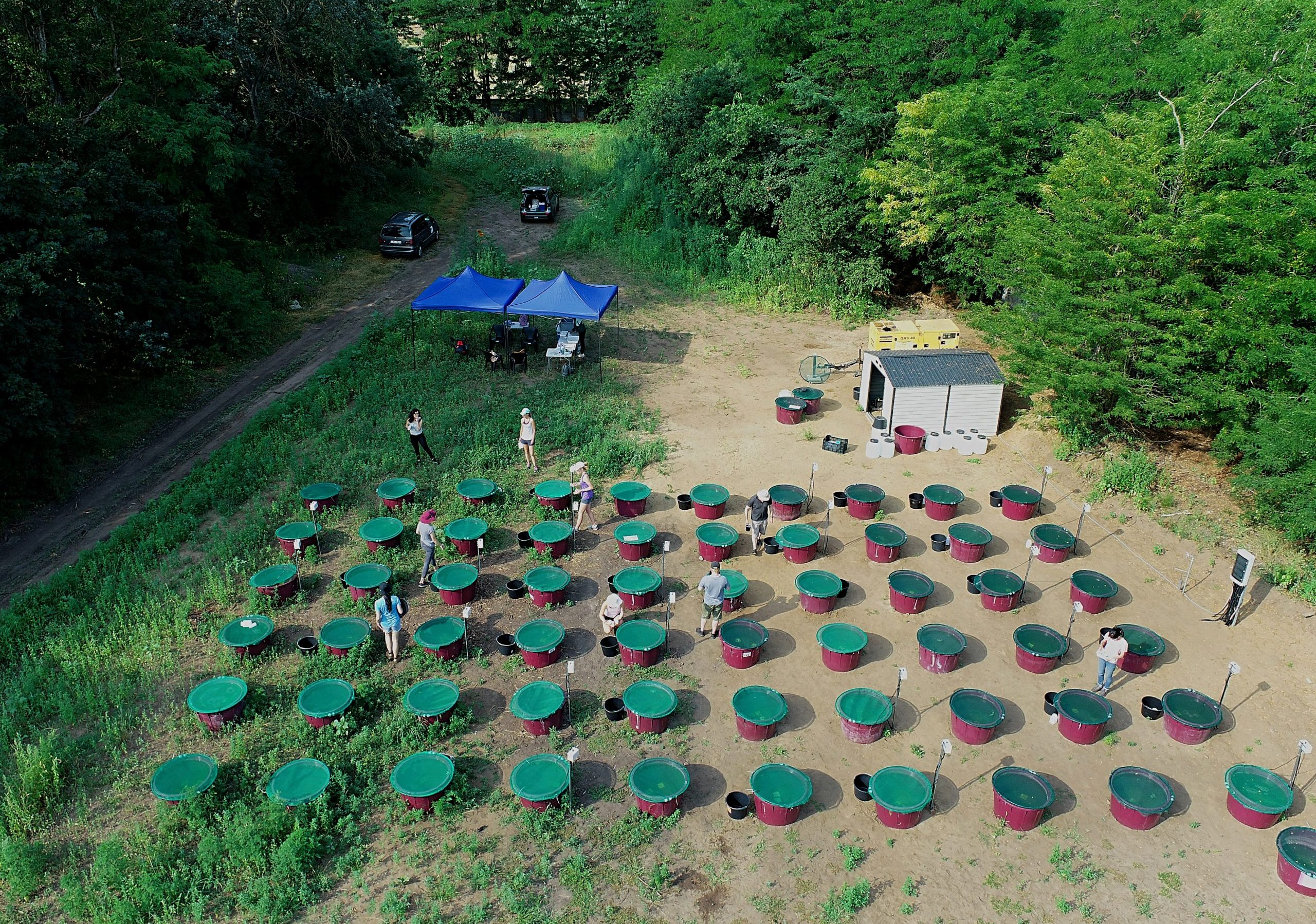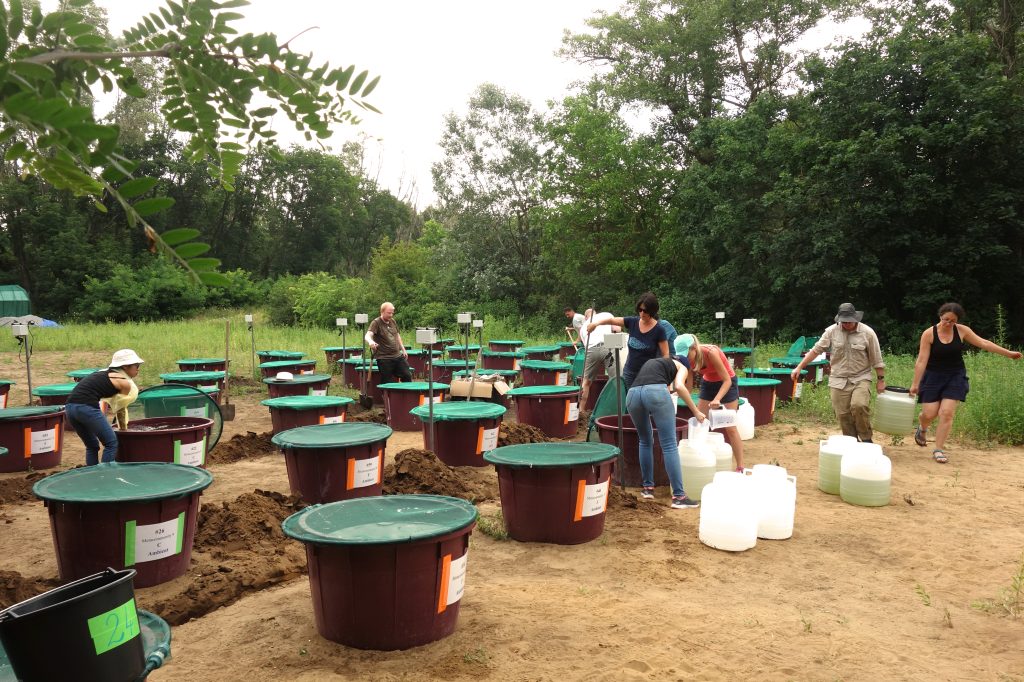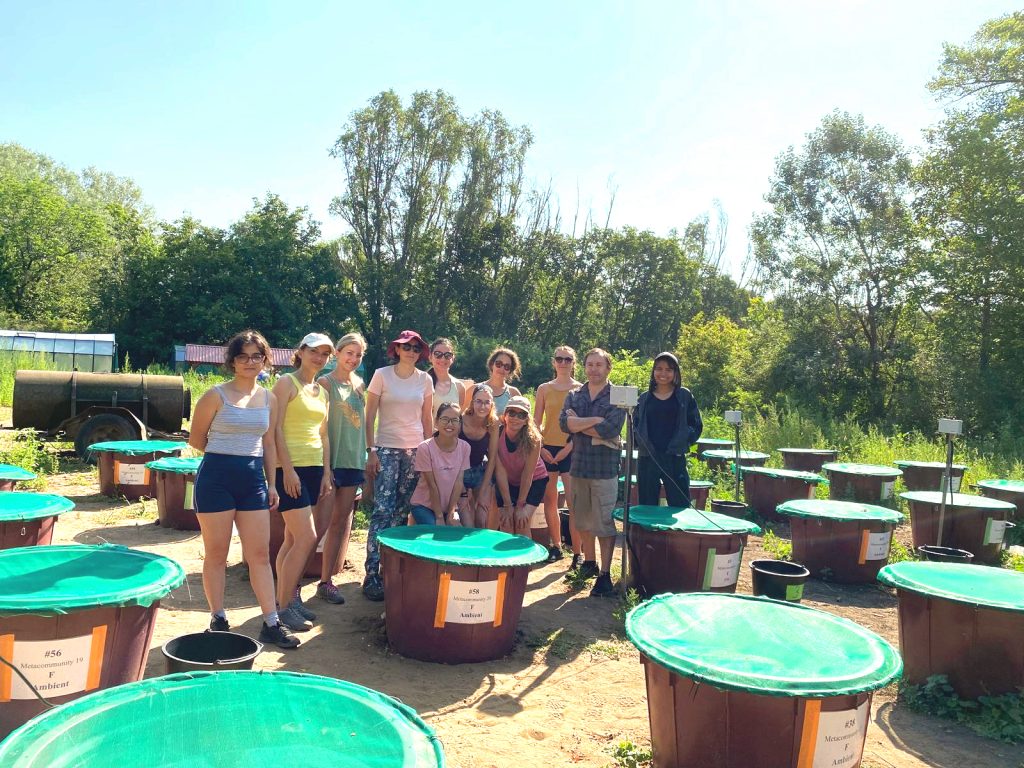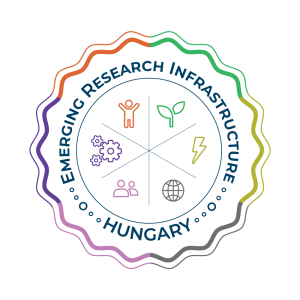
The Institute of Ecology and Botany and the Institute of Aquatic Ecology have been working together to establish new experimental infrastructure in Vácrátót. In parallel with the greenhouse experimental system, two mesocosm infrastructures are also being established, which will be used for short- and long-term experiments. The first of these, called the CER Mesocosms has been completed and is already hosting the first experiment, in which researchers from the Institute of Aquatic Ecology are investigating the combined effects of climate change (heat waves) and fragmentation as part of an OTKA project.

The Transnational Access programme of the H2020 AQUACOSM-plus project has provided the opportunity for a group of international researchers and trainees to participate in the experiment. The main objective of the programme, in addition to provide networking possibilities between researchers, is to create opportunities for students and young researchers to become familiar with the tools of experimental aquatic ecology and to gain practical experience through active participation in mesocosm experiments at the project partners’ sites. The Centre for Ecological Research will thus host a total of 10 international guests from Greece, Serbia, Spain, the UK, Chile, Uruguay, who will be joined by an Erasmus+ student from Turkey and several Hungarian university trainees over the next two months.

The CER Mesocosms (together with the Hungarian Pond Network, which is still under construction) is recognized as “Emerging Research Infrastructure” by the National Research, Development and Innovation Office (NKFIH)



